When he was first elected President of Uzbekistan in 2016, Shavkat Mirziyoyev immediately began to open his country, starting from the economy. He has lifted many quite strict rules imposed by the previous President Islam Karimov, and that helped him a lot to win people’s hearts and minds during his first presidential term. Still, it was crystal clear that Shavkat Mirziyoyev prioritized economic freedoms over the political ones.
Surprisingly, these far-reaching economic reforms were enough to cause a positive spillover effect on domestic and regional affairs. Thanks to the Uzbek’s proactive stance, Central Asia became a more stable, integrated and prosperous region, with Uzbekistan itself as a reliable partner to deal with. At the domestic level, the country was gradually meeting international labor and human rights, at the same time, applying environmental and climate protection mechanisms with good governance practices. Just to mention the Uzbekistan’s cotton sector, which thanks to the above mentioned reforms has undergone crucial transformation - from the forced and obligatory commitment for almost 2 million people, to a paid and regulated voluntary seasonal work totally free from systemic child and forced labour.
Second presidential term: new challenges, new strategies
The president’s economic strategy was quite courageous and laudable as for Central Asia, but was also widely accepted and commended by the international community. The Uzbek president offered policies grounded in reality and pragmatism that simply worked out. However it was evident that what worked for the first term, would not be enough for the second: following successful economic changes, Uzbekistan must have faced political transformation. Only a second presidential term could reveal Shavkat Mirziyoyev's real intentions and the level of liberalism.
And so, in May 2022, he announced the first preparations for a constitutional reform.
Despite the fact that almost every European constitution in one way or another has been changed during the last 30 years, still when people in Europe hear the “constitutional reform” word combination, especially coming from the post-soviet space, it automatically associates with some negative consequences, first and foremost with the reset of the previous presidential terms.
For those of you who have fallen for this manipulation using a one size fits all approach, and comparing Uzbekistan with other countries, I have bad news. It has nothing to do with reality. Uzbekistan is different and it is this constitutional reform that will show us to what extent.
Firstly, constitutional reform was part of Mirziyoyev’s 2021 election programme from the very beginning.
What is more, this idea was shared among the other candidates from the Milliy Tiklanish, Adolat or Ecological parties of Uzbekistan. It means that the proposal to change the constitution was long overdue.
Secondly, the constitutional reform process was launched back in November 2021, when the first group of the domestic and foreign experts, representatives of the scientific, academic, and educational circles were tasked to evaluate the current situation, assess it and prepare the first proposals. One should not expect the last minute amendments, political whims or “pleases”. The reform has already been through a long, well-organized, and deliberate process with no room for the speculations left.
Lastly, after months of broad and extensive public consultations, the Constitutional Commission (CC) received more than 60 000 propositions, ideas and remarks that are now published and available online.
The debate is still ongoing. In partnership with the EU delegation to Uzbekistan, on the 20th of June, the CC organized a conference in Urgench to discuss the international experience of constitutional development. The conference involved 300 foreign and national experts, from 30 countries as well as civil society institutions and academic communities. Uzbekistan is doing its best in collecting the leading international practices and experiences of the constitutional change.
What to expect?
The constitutional reform is going to introduce the greatest amount of legislation to modify the current rules and practices left after the dissolution of the Soviet Union. It is going to expand the fundamental individual and collective rights and freedoms, improve the separation of powers, and the independence of the judiciary, etc.
Among the others, the new Constitution will include:
1. Revolutionary shift in the national operating paradigm from “state – society – person” to a new one: “person – society – state”;
2. provision of human interests in the process of economic reforms as one of the most important condition for building a social and just state;
3. improved and reinforced role and status of civil society institutions;
4. special environmental provisions;
5. improved system of human rights protection, preventing child labor, reliable protection of the rights of persons with disabilities, representatives of the older generation.
By these changes, Uzbekistan will respond to the pressing challenges and the development of a nations’ needs.
Last off…
We are witnessing a democratic development of the Uzbek nation, which comes as a second step after the far-reaching economic reforms previously undertaken by the current President. New Constitution will become the strategic roadmap for the development of Uzbekistan, thus an official opening of a new chapter in the country's history. It is very important for Europe to make an objective evaluation of this process to make its input into the formation of the new Uzbekistan. Greater European involvement and awareness will only deepen democratization, human rights and political freedoms that are highly demanded.
Let’s not be shortsighted and limited to one option or explanation, but soon be ready to welcome Uzbekistan in our democratic camp.
Vita Kobiela is research and policy analyst on EU-Central Asia relations and analyst at EUROUZ and communications consultant at Volt Brussels.

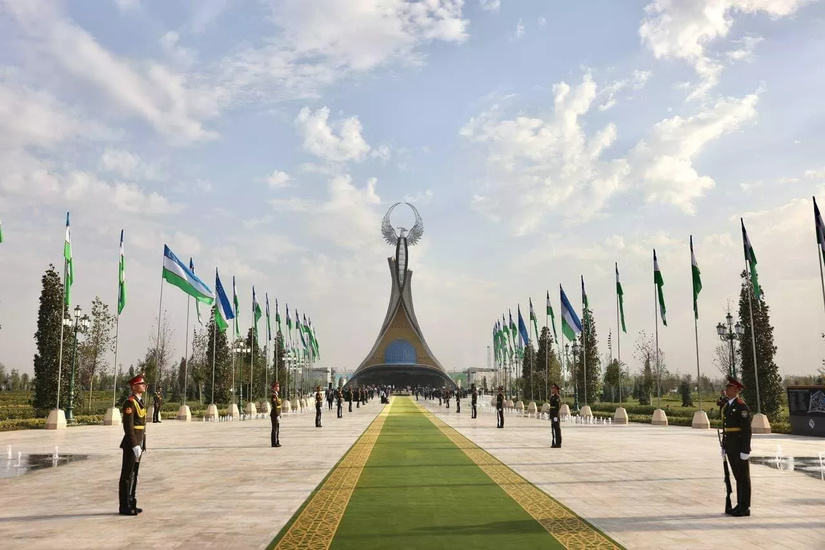
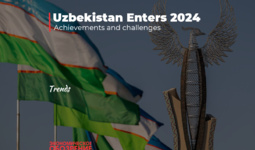
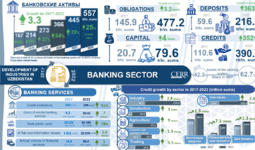
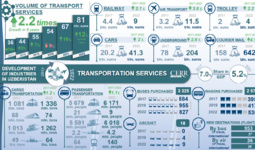
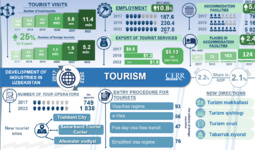
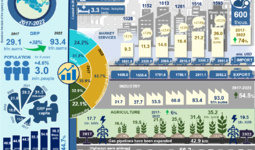
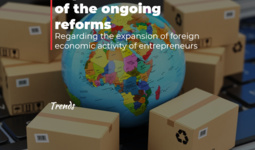













leave a comment